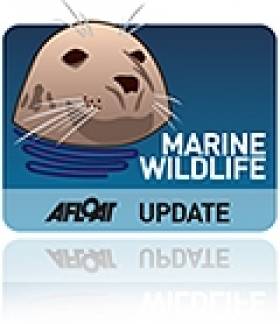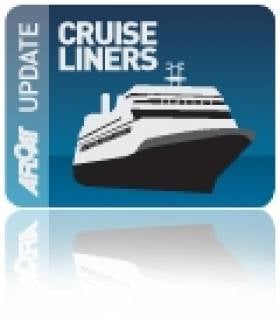Displaying items by tag: whalewatching
New Research Says Sonar Sends Whales Scurrying
#MarineWildlife - The Guardian reports on new research which proves that military sonar has a direct effect on the behaviour of whales in our oceans - even leading to mass strandings.
The studies, part funded by the US Navy, found that beaked whales where particularly sensitive to sonar - and that even blue whales, the largest animals on earth, were distracted from feeding by the subsurface noise.
It's long been feared that the use of sonar is to blame for unusual behaviour among whales, who navigate and communicate with each other over long distances using sound.
As previously reported on Afloat.ie, the Irish Whale and Dolphin Group (IWDG) identified sonar activity by Royal Navy submarines as a possible cause of a the mass stranding of pilot whales in Donegal in November 2010, in which as many as 35 whales died.
Now for the first time, sonar has been proven to affect behaviour of cetaceans to a detrimental degree, confirming for many a connection between the use of sonar technology and recordings of whale and dolphin strandings identified since the 1950s. The Guardian has much more on the story HERE.
In more positive whale-related news, the IWDG reports that its next Cape Clear summer whalewatching course over the weekend of 26-28 July is "filling up nicely".
Places are still available but as it coincides with the tourism high season in West Cork, anyone interested is advised to book sooner than later to ensure they have someone to stay nearby.
The most recent weekend course over the June bank holiday witnessed numerous harbour porpoises and common dolphins, but its hoped the elusive whales will make an appearance next time round!
Graham Norton's 'Jaw-Dropping' Alaska Coastline Experience
#CRUISE LINERS - TV host and funnyman Graham Norton recounts his breathtaking experiences on a cruise to Alaska for the Mail on Sunday.
"Until Alaska, my own serious nautical experience was crossing the Irish Sea on a car ferry," writes the Cork native best known for his BBC chat show.
But the remoteness of the Alaskan coastline - as seen from the decks of the Crystal Symphony - struck him with a special kind of awe.
"Enjoying Alaska's natural wonders It's hard not to be amazed as you cruise into wilderness areas such as Glacier Bay because they're so jaw-droppingly spectacular. It's absolutely beautiful," he says.
"The highlights were the glaciers and the whale-watching. The ship sails right up to the wall of the glacier and you sit there watching large blocks of ice breaking off calving, I think it's called, and it's just stunning."
Norton was especially surprised by his excitement at seeing the whales.
"They're brilliant. Watching them popping out of the sea was really, really, really good! So good, in fact, you kind of think I mustn't go whale-watching again because I'll only be disappointed next time. It was quite an emotional experience. You feel privileged to see these creatures."
Perhaps next time he takes a break in West Cork he might take a look out to sea and witness some of those magnificent creatures a lot closer to home!

























































